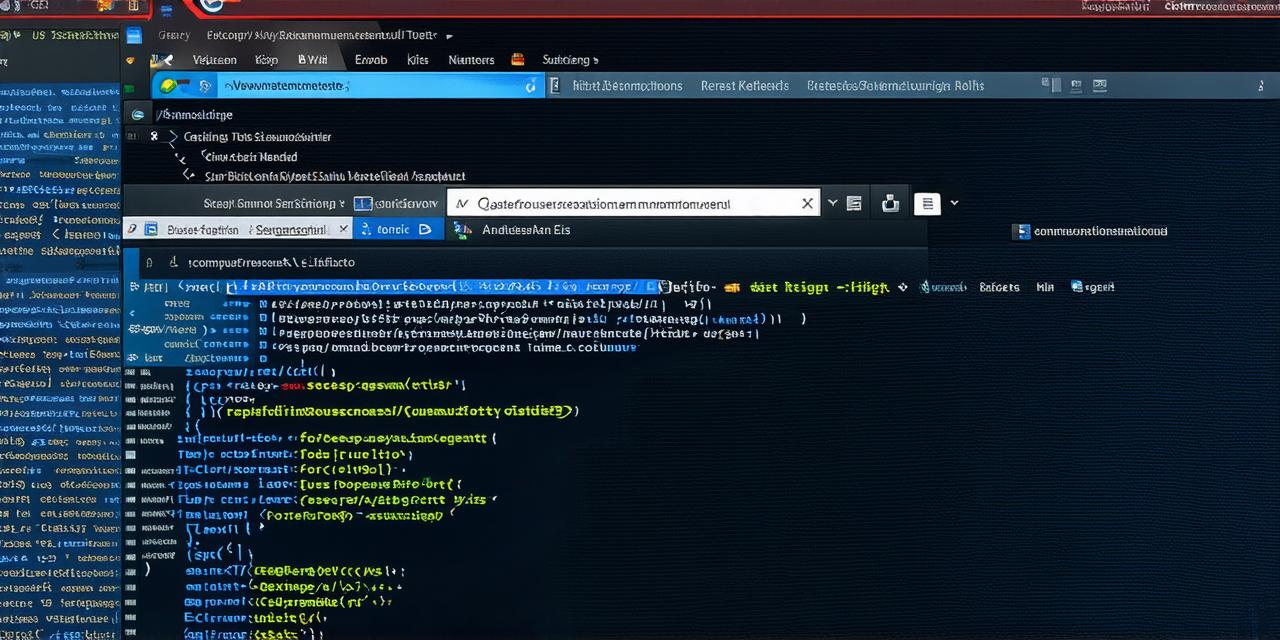Is web design a part of computer science?
BlogWeb design and computer science are two fields that may seem vastly different, but they are closely intertwined. Web design involves more than just creating visually appealing websites; it requires a deep understanding of computer science concepts such as HTML, CSS, JavaScript, and web development frameworks like React or Angular. In this article, we will explore the relationship between web design and computer science in detail and examine how they intersect.
Web Design vs Computer Science: What’s the Difference?
Web design is a process that involves designing, creating, and maintaining websites. It requires a range of skills such as graphic design, user experience (UX) design, and front-end development. Web designers are responsible for creating visually appealing and functional websites that meet the needs of their clients or users.
Computer science, on the other hand, is a field that focuses on the study of algorithms, programming languages, and computer systems. Computer scientists design and develop software applications, operating systems, and network protocols. They also explore the theoretical foundations of computing and its impact on society.
Although web design and computer science may seem like two distinct fields, they are closely related. Web designers need to have a basic understanding of computer science concepts such as HTML, CSS, and JavaScript to create functional websites. Similarly, computer scientists may work on web development projects that require knowledge of these same technologies.
Why Is Web Design Important in Computer Science?
Web design plays an important role in computer science because it is the interface between users and software applications. A well-designed website can make a complex application more accessible and user-friendly, leading to increased adoption and usage.
Furthermore, web design requires knowledge of computer science concepts such as algorithms, data structures, and user interfaces. Web designers must understand how to optimize their designs for performance and usability, which involves using computer science techniques such as caching, minification, and A/B testing.
Web Design vs Computer Science: Common Misconceptions
Despite the close relationship between web design and computer science, there are some common misconceptions about their roles and responsibilities. Here are a few of them:
-
Web designers don’t need to know computer science.
-
Computer science is only for software developers.
-
Web design is only about creating pretty websites.
The Role of Web Design in Computer Science Education
As web design becomes an increasingly important part of our digital world, it is essential that computer science education includes web design courses. Many universities and colleges now offer degree programs in computer science with a focus on web design, as well as standalone web design courses.
These courses provide students with the skills and knowledge they need to create functional and visually appealing websites. They also teach students about the latest web development technologies and best practices, such as responsive design, accessibility, and performance optimization.
Moreover, web design requires a range of skills beyond just coding, including graphic design, user experience design, and front-end development. Therefore, it is essential that computer science education includes courses in these areas to provide students with a well-rounded understanding of web design.
Web Design vs Computer Science: The Intersection
The intersection between web design and computer science lies in the use of computer science concepts to create functional websites. Web designers need to understand how algorithms, data structures, and user interfaces work to create a seamless user experience. They also need to know how to optimize their designs for performance and usability using techniques such as caching, minification, and A/B testing.
Furthermore, web design requires knowledge of computer science frameworks such as React or Angular, which are used to build complex applications. Web designers must understand how to use these frameworks to create functional and visually appealing websites that meet the needs of their clients or users.
Web Design vs Computer Science: The Future
As web design becomes more critical in today’s digital world, it is essential that computer science education includes web design courses to provide students with the skills and knowledge they need to succeed in their field.
Moreover, web design requires a range of skills beyond just coding, including graphic design, user experience design, and front-end development. Therefore, it is essential that computer science education includes courses in these areas to provide students with a well-rounded understanding of web design.
In conclusion, web design and computer science are closely intertwined fields that require knowledge of each other. Web designers need to have a basic understanding of computer science concepts such as HTML, CSS, and JavaScript to create functional websites. Similarly, computer scientists may work on web development projects that require knowledge of these same technologies. As web design becomes more critical in today’s digital world, it is essential that computer science education includes web design courses to provide students with the skills and knowledge they need to succeed in their field.
